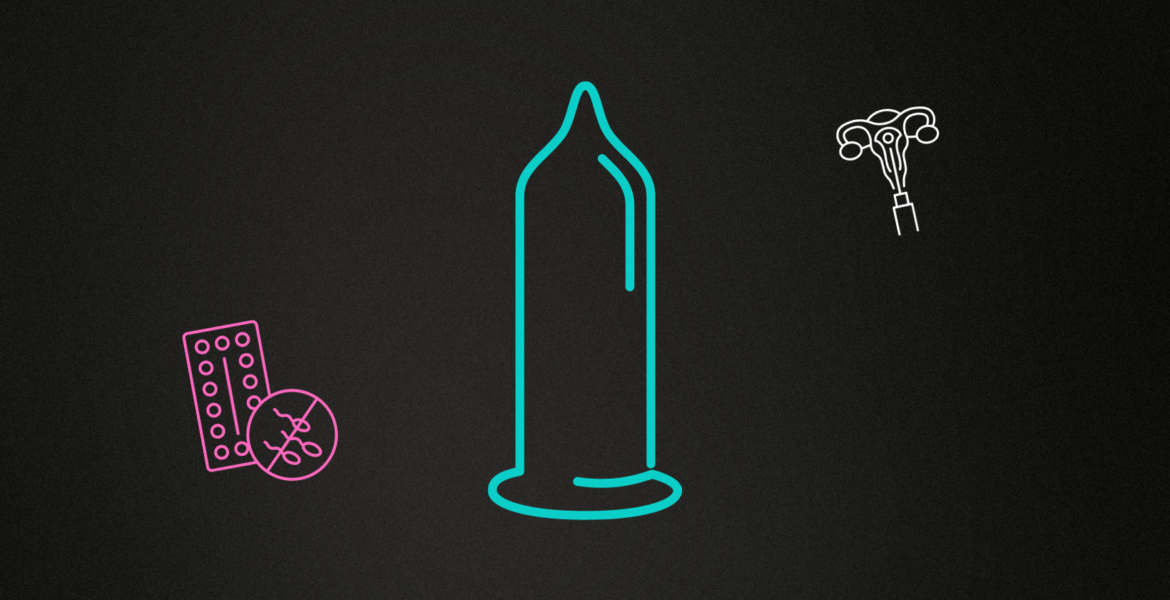Everything you need to know about Contraception!
October 7, 2023 2023-10-07 13:04Everything you need to know about Contraception!

Everything you need to know about Contraception!
Sexuality education is a vital component of a child’s upbringing, and within that, understanding contraception is crucial.
It’s a topic that can be a bit uncomfortable for both parents and children, but it’s an essential one for fostering responsible sexual behavior and preventing unintended pregnancies.
In this blog post, we’re going to dive deep into contraception—specifically, the types of contraception available in India, their effectiveness, potential side-effects, and debunk some common myths. So, let’s break the ice and get talking about contraception!
A. Types of Contraception in India:
1. Condoms:
Condoms are one of the most widely accessible and popular forms of contraception. They come in various materials like latex and polyurethane, and they can be used by both males and females.
Condoms provide a dual benefit by preventing both unwanted pregnancies and sexually transmitted infections (STIs). They’re relatively easy to use and have minimal side effects.
Effectiveness & Side-effects:
Condoms are about 98% effective when used correctly.
Side effects are minimal, with some people experiencing latex allergies or irritation.
2. Oral Contraceptives:
Birth control pills, commonly known as oral contraceptives, contain hormones that prevent ovulation (the release of an egg from the ovaries).
They are highly effective when taken consistently and correctly but should be taken under a doctor’s guidance due to potential side effects.
Effectiveness & Side-effects:
The effectiveness of birth control pills depends on proper and consistent use.
They are over 99% effective when taken as directed. Common side effects include nausea, weight gain, and changes in menstrual cycle.
3. Intrauterine Devices (IUDs):
IUDs are small, T-shaped devices inserted into the uterus by a healthcare provider. They offer long-term contraception, ranging from 3 to 10 years depending on the type.
They are highly effective and require minimal maintenance once inserted.
Effectiveness & Side-effects:
IUDs are over 99% effective.
Side effects may include cramping, irregular bleeding, or, in rare cases, the device may be expelled from the uterus.
4. Injectable Contraceptives:
Injectable contraceptives are hormonal shots that are administered every few months by a healthcare provider. They are convenient for those who prefer not to take a daily pill and provide effective contraception.
Effectiveness & Side-effects:
Injectable contraceptives are about 94-99% effective when administered as directed.
Side effects may include weight gain, irregular periods, or mood changes.
5. Emergency Contraception:
Sometimes called the “morning-after pill,” emergency contraception is used to prevent pregnancy after unprotected intercourse or contraceptive failure. It’s not meant for regular use and should be a backup option only.
Effectiveness & Side-effects:
When taken within 72 hours of unprotected sex, emergency contraception is highly effective at preventing pregnancy.
Side effects are usually mild and short-lived.
B. Myths & Facts about Contraception:
1. Myth: Condoms Are Only For Men.
Fact: Condoms are available in both male and female versions. Male condoms are worn on the penis, while female condoms are inserted into the vagina.
Both provide a barrier method of contraception and help prevent the transmission of sexually transmitted infections (STIs).
2. Myth: Birth Control Pills Cause Weight Gain.
Fact: While some individuals may experience slight weight gain while on birth control pills, extensive research shows that the majority of users do not experience significant weight changes.
Any weight changes are often due to factors like lifestyle and diet, rather than the pill itself.
3. Myth: IUDs Are Only For Women Who Have Already Given Birth.
Fact: IUDs are a safe and effective contraceptive option for women, whether or not they have given birth. Healthcare providers consider factors like a woman’s overall health and reproductive goals when determining if an IUD is a suitable choice.
4. Myth: Emergency Contraception Is The Same As Abortion.
Fact: Emergency contraception, often called the “morning-after pill,” works to prevent pregnancy before it occurs.
It does not terminate an existing pregnancy. It is most effective when taken as soon as possible after unprotected sex or contraceptive failure but becomes less effective the longer you wait.
5. Myth: Contraceptives Always Cause Infertility.
Fact: Most contraceptive methods are reversible. Once a person stops using contraception, fertility typically returns to its previous state.
For instance, fertility returns shortly after discontinuing birth control pills, and the effects of an IUD are reversible once it’s removed. Permanent methods like sterilization (tubal ligation or vasectomy) are exceptions to this rule.
6. Myth: You Can’t Get Pregnant On Your Period.
Fact: While the likelihood of getting pregnant during menstruation is lower, it is not impossible.
Sperm can survive in the female reproductive tract for several days, so if a woman has a short menstrual cycle, ovulation may occur shortly after her period ends, increasing the risk of pregnancy.
Contraception should be used consistently and correctly to prevent unwanted pregnancies regardless of the timing of the menstrual cycle.
Understanding these myths and facts about contraception is essential for making informed decisions about family planning and sexual health. Consulting with a healthcare provider can help individuals and couples choose the most suitable contraceptive method for their unique circumstances.
Conclusion:
Contraception is a vital aspect of sexual health and family planning. By understanding the various options available, their effectiveness, potential side effects, and dispelling common myths, we can make informed choices that align with our needs and preferences.
Remember, it’s never too early to start these conversations with your children as part of comprehensive sexuality education, promoting responsible and informed decisions when it comes to sexual health.
Are you interested in learning more about contraception or how to sex ed your child? Connect with me to get more details.
I’m here to provide information, answer questions, and help you help your child make informed decisions about sexual health.




